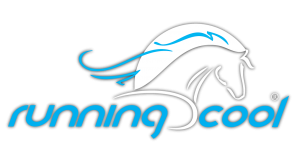Creating a diet for your horse begins by assessing their age, breed, workload and overall health. But, what about when your horse’s feed ration is unbalanced, leading to unexpected and unwanted behaviours?
In our new series on the role of nutrition on horse behaviour, we explore this further…
Every horse is an individual and your horse’s diet should be specifically formulated for them. It’s important you continue to pay attention to their nutrition
throughout life as their caloric needs may change — at different times of year, when their workload increases and as they age.
Encountering unexpected — and certainly unwanted — behaviours can be challenging. While some behaviours are mild, such as difficulty when tacking
up, other behaviours can be downright dangerous, like rearing, bucking and spooking under saddle.
As a horse owner, it’s important you don’t jump to any conclusions too quickly. Your horse isn’t necessarily trying to be “stubborn” or “nasty”; in fact,
they’re often trying to tell you an important message — and it’s up to each of us to listen.
Remember, unexpected behaviours can be linked to a number of causes. Before making any changes to your horse’s diet, you should have them assessed by your
veterinarian to ensure pain or an underlying health problem isn’t the cause.
If these possibilities have already been eliminated, it’s time to consider their diet.
Diet and Feed Management
In Part 1 and 2 of our series, we recommended simple dietary changes you can make for your horse when you consider their age and workload. A forage-first
diet, high in fibre, low in sugar, is fundamental for health, wellbeing and performance — and good behaviour.
But, what if your feed ration is correct and your feed management is wrong? There are a number of common mistakes horse owners make at feed time, particularly
when feeding performance horses whose diets demand higher energy. These include:
Providing too much feed in one sitting. It’s imperative that each serving of feed doesn’t exceed 2kg. Ideally, your horse should receive the full ration
across two or more meals per day to ensure their digestive tract isn’t overloaded all at once.
Focusing on grain and concentrate, without providing enough forage. Fibre is the most important ingredient in your horse’s diet. Without adequate forage,
including pasture and hay, undigested starch from grain and concentrate disrupts the normal fermentation process.
Together, these feeding mistakes can lead to irritation, inflammation and pain in the hindgut — sometimes exhibited as mild colic signs. However,
other problems can occur, including unwanted behaviours, such as:
Unwillingness to work
Loss of appetite
Chewing of fences or other surfaces
However, when the right type and amount of feed is given, your horse’s health, wellbeing and performance benefit. If you still have questions about your
horse’s diet, speak with a qualified equine veterinarian or nutritionist. To learn more about our Running Cool range, please call (07) 4666 3366 or
visit www.runningcool.com.au.
At Running Cool, we genuinely care about your horse’s health and wellbeing. Our superior horse feed range supports your horse at every stage of life with well-balanced vitamins, minerals and protein for pleasure and performance. Click here to learn more.
